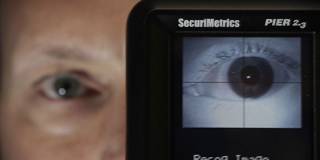 Peter Macdiarmid/Getty Images
Peter Macdiarmid/Getty Images
数据保护即社会保护
墨西哥城—最近几十年来,全球社会援助计划得到了增强,如今,它们令25亿多人受益,通常是最贫穷、最脆弱人群。但将生物计量学技术用于验证受益人身份、整合从公民注册到执法数据库的信息的日益紧迫的压力,意味着社会保障计划可能给依靠这些计划的人带来新的风险。
私人公司、捐赠机构和世界银行指出,应用生物计量学工具——如虹膜和指纹扫描或者面部和声音识别——将与数据库的整合一起实现提高效率,打击欺诈并降低成本。许多政府似乎对此相当确信。
对于生物计量学技术在社会援助机制中的使用,尚无系统性的信息,但对一些重大项目的观察表明,生物计量学技术的使用正在增多。在南非,1,720万社保受益人获得了生物识别智能卡。在墨西哥,5,560万大众医保(最贫困公民的公共医疗保险)受益人必须向当局提供他们的生物计量学数据。
https://prosyn.org/EwyE1Nizh
To continue reading, register now. It’s free!
Register Now
Already have an account?
Log in



墨西哥城—最近几十年来,全球社会援助计划得到了增强,如今,它们令25亿多人受益,通常是最贫穷、最脆弱人群。但将生物计量学技术用于验证受益人身份、整合从公民注册到执法数据库的信息的日益紧迫的压力,意味着社会保障计划可能给依靠这些计划的人带来新的风险。
私人公司、捐赠机构和世界银行指出,应用生物计量学工具——如虹膜和指纹扫描或者面部和声音识别——将与数据库的整合一起实现提高效率,打击欺诈并降低成本。许多政府似乎对此相当确信。
对于生物计量学技术在社会援助机制中的使用,尚无系统性的信息,但对一些重大项目的观察表明,生物计量学技术的使用正在增多。在南非,1,720万社保受益人获得了生物识别智能卡。在墨西哥,5,560万大众医保(最贫困公民的公共医疗保险)受益人必须向当局提供他们的生物计量学数据。